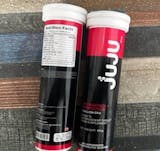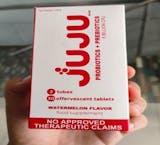Acne is a common skin condition that affects people of all ages and can have a significant impact on their self-esteem. While there are many treatments available for acne, some people are turning to collagen supplements to improve their skin health. But the question is, Does collagen help with acne? In this article, we’ll explore the connection between collagen and acne, and whether collagen can actually help with this frustrating skin condition.
IN THIS ARTICLE
09. Conclusion
What is Collagen and What is its Role in the Skin?
Collagen is a protein that is found throughout the body, including in the skin, bones, and muscles. It is the most abundant protein in the body, making up around 30% of the body’s total protein content. Collagen plays a crucial role in skin health, as it helps to maintain the skin’s elasticity, hydration, and overall appearance.
Collagen is produced by cells called fibroblasts, which are found in the dermis, the middle layer of the skin. There are many different types of collagen, but type 1 collagen is the most abundant and is found primarily in the skin, tendons, and ligaments.
Collagen provides structural support to the skin, helping to maintain its firmness and elasticity. As we age, our body’s natural collagen production declines, which can lead to wrinkles, sagging skin, and other signs of aging.
Collagen also plays a role in wound healing and tissue repair. When the skin is injured, collagen helps to form new tissue to replace the damaged tissue. This process helps to prevent scarring and promotes faster healing.
In addition to its structural and reparative roles, collagen also helps to maintain the skin’s hydration levels. Collagen molecules are able to bind to water, helping to keep the skin hydrated and plump.
Overall, collagen is a crucial component of healthy, youthful-looking skin. Maintaining healthy collagen levels through a balanced diet, lifestyle habits, and skincare can help to improve the skin’s appearance and prevent the signs of aging.
What is Acne?
Acne is a skin condition that occurs when hair follicles become clogged with oil, dead skin cells, and bacteria. This can lead to the development of pimples, blackheads, whiteheads, and other types of blemishes. Acne is caused by a combination of factors, including hormones, genetics, and environmental factors.
MOST COMMON CAUSES OF ACNE
Here are some of the most common causes of acne:
Hormonal Changes
Hormonal changes during puberty, menstruation, pregnancy, and menopause can all contribute to the development of acne. Androgens, a type of hormone, can stimulate the sebaceous glands to produce more oil, leading to clogged pores and acne breakouts.
Genetics
Some people may be genetically predisposed to developing acne. If your parents or siblings had acne, you are more likely to develop it as well.
Poor Skincare Habits
Not washing your face regularly or using harsh, irritating products can worsen acne. Cleansing the skin twice a day and using non-comedogenic skincare products can help to prevent breakouts.
Diet and Lifestyle
Some studies have linked a diet high in refined sugars and dairy products to an increased risk of developing acne. Eating a balanced diet rich in whole foods can help to promote healthy skin.
Stress
Stress can trigger acne breakouts by increasing the production of stress hormones, which can lead to increased oil production and inflammation in the skin.
Medications
Certain medications, such as corticosteroids, androgens, and lithium, can contribute to acne breakouts.
Environmental factors
Exposure to pollutants and irritants in the environment can also contribute to the development of acne.
Understanding the underlying causes of acne can help you to take steps to prevent and treat breakouts effectively. A combination of good skincare habits, a balanced diet, stress management, and medical treatment can all help to improve acne symptoms and promote healthy, clear skin.
Collagen and Skin Health
Collagen is a key component of healthy skin, and it plays a critical role in maintaining the skin’s firmness, elasticity, and overall appearance. Here’s a closer look at how collagen affects skin health:
-
-
Promotes Skin Elasticity
Collagen provides structural support to the skin, helping it to maintain its elasticity and firmness. As we age, our natural collagen production declines, which can lead to sagging, loose skin.
-
Improves Hydration
Collagen molecules are able to bind to water, which helps to keep the skin hydrated and plump. Proper hydration is essential for healthy, glowing skin.
-
Reduces Wrinkles and Fine Lines
Collagen is a crucial component of the skin’s extracellular matrix, which gives the skin its structure and support. When collagen levels decline and withe result of ageing skin, the skin becomes less supple and more prone to wrinkles and fine lines.
-
Promotes Wound Healing
Collagen plays a critical role in the body’s wound healing process. When the skin is injured, collagen helps to form new tissue to replace the damaged tissue. This process helps to prevent scarring and promote faster healing.
-
Increases Skin Thickness
Collagen production helps to increase the thickness of the skin, making it more resilient and less prone to damage from environmental stressors.
-
Hair growth
Collagen not just affects the skin by making it beautiful and healthy, collagen also helps in hair health. The use of collagen can aid to hair loss. It also helps in making your hair strong and grow faster.
-
Promotes Skin Elasticity
While our body naturally produces collagen, factors such as age, sun damage, and pollution can cause collagen breakdown. To maintain healthy collagen levels, it is essential to protect the skin from environmental stressors and to consume a balanced diet rich in collagen-boosting nutrients like vitamin C, zinc, and copper.
Supplementing with collagen supplements, collagen drinks, collagen creams or serums can also help to improve skin health by providing an additional source of collagen to the body. By supporting healthy collagen production and consumption, we can promote healthy, youthful-looking skin.
Link Between Collagen and Acne
There is some evidence to suggest that collagen supplements may help to improve acne symptoms. Collagen is thought to help reduce inflammation in the skin, which can contribute to acne. It also helps to support the skin’s structure and elasticity, which can prevent pores from becoming clogged and reduce the appearance of scars.
One study published in the Journal of Cosmetic Dermatology found that participants who took collagen supplements for 12 weeks experienced a significant reduction in acne and other skin blemishes. Another study published in the Journal of Drugs in Dermatology found that collagen supplements helped to improve skin hydration and elasticity, which can also benefit acne-prone skin.
In addition to taking collagen supplements, there are other ways to increase collagen production in the skin. Eating a diet rich in collagen-boosting foods, such as bone broth, leafy greens, and citrus fruits, can help to support collagen production. Certain skincare products, such as those containing retinoids, vitamin C, and niacinamide, can also help to boost collagen production and improve acne symptoms.
Using Collagen for Acne Treatment
Collagen is a popular ingredient in many skincare products, and it is known for its anti-aging and skin-plumping benefits. But can collagen also be used for acne treatment? Let’s take a closer look.
While collagen itself may not be a direct treatment for acne, it can help to improve overall skin health, which can, in turn, help to prevent and treat acne breakouts. As we mentioned earlier, collagen plays a crucial role in maintaining healthy skin by promoting elasticity, hydration, and wound healing.
By boosting collagen levels in the skin, we can help to strengthen the skin’s barrier function, which can make it more resilient to environmental stressors like pollution, UV radiation, and harsh skincare products. A strong skin barrier can also help to reduce inflammation, which is a key factor in acne development.
Additionally, some studies have suggested that collagen supplements may help to reduce the appearance of acne scars by promoting skin regeneration and increasing skin thickness. This is because collagen is a crucial component of the extracellular matrix, which provides the skin with structure and support.
While collagen supplements and skincare products may be helpful for supporting healthy skin, it is important to note that they are not a substitute for medical acne treatment. If you are experiencing moderate to severe acne, it is important to consult with a dermatologist who can provide you with personalized treatment recommendations.
Tips for Preventing Acne
While collagen may be a helpful addition to an acne treatment regimen, it is not a cure-all. There are many other lifestyle changes and skincare tips that can help to improve acne symptoms. These include:
- Eating a healthy, balanced diet
- Drinking plenty of water
- Avoiding harsh skincare products
- Washing your face regularly
- Avoiding touching your face
- Getting enough sleep
- Managing stress levels
In severe cases, a dermatologist may recommend professional treatments for acne, such as prescription medications, chemical peels, or laser therapy.
Frequently Asked Questions
Is collagen good for oily or sensitive skin types?
If you have dry or sensitive skin, you should use this ingredient carefully. Other skin care products using collagen as an ingredient include: Serums: Collagen serums, when combined with other active substances, can improve your complexion’s protein content.
Can collagen help with acne scars?
Even though collagen supplements can’t “break down” or “erase” old, deep acne scars, they could help prevent new acne and Collagen help acne scars to heal faster, and helps in improving the appearance of the scar which would make your skin look much better.
Can I take collagen supplements in combination with other skincare products?
Different kinds of collagen in your diet are generally thought to be safe. It has been shown that taking collagen as a supplement is good for your health and has low risk.
What is the difference between marine collagen and bovine collagen for acne-prone skin?
Marine collagen is mostly Type I collagen, while bovine collagen is usually a mix of Type I and Type III collagen.
How long does it take for collagen to work for acne?
So, no matter what you want to achieve with collagen, it will take at least 8 weeks to see results. Most studies look at collagen’s effects on skin health and joint pain relief for at least 8 weeks. However, other studies look at collagen’s effects on bone health for longer periods, such as 12 months.
Conclusion
In conclusion, collagen may be a helpful addition to an acne treatment regimen. Its ability to reduce inflammation and support skin structure can contribute to clearer, healthier-looking skin. So to answer the question “Does Collagen Help in Acne?”, the answer is yes!
While collagen is a beneficial ingredient for promoting overall skin health, it may not be a direct treatment for acne. .However, it is important to remember that collagen is not a cure-all for acne and should be used in conjunction with other lifestyle changes and skincare tips.
By supporting healthy collagen levels and maintaining a balanced skincare routine, we can help to prevent and reduce acne breakouts and achieve healthy, glowing skin. If you are struggling with acne, speak to a dermatologist for personalized treatment recommendations.










